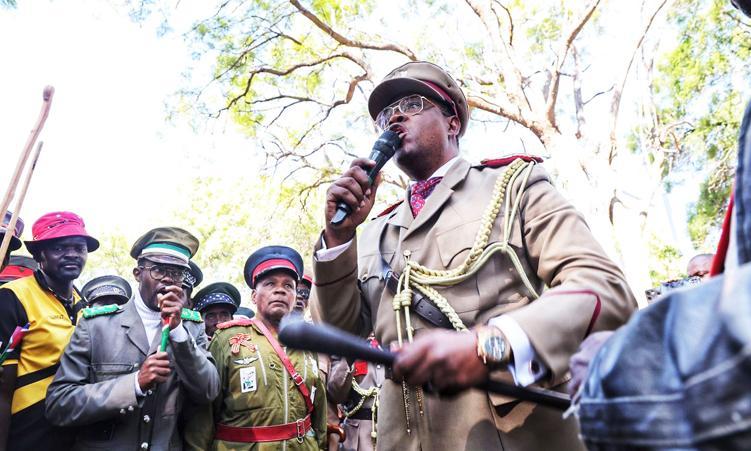Africa-Press – Namibia. In an act of political opportunism, some opposition parties boycotted the inaugural Genocide Remembrance Day.
These leaders seemingly hoped for low public turnout, but their tactics, rooted in disinformation and misinformation, ultimately failed. Namibians turned out in significant numbers, showing collective support for national remembrance and historical justice.
Among the boycott leaders was Landless People’s Movement (LPM) president Bernadus Swartbooi, who accused the government on television of promoting a one-sided narrative and refusing to unify commemoration dates observed separately by the Nama and Ovaherero communities.
While the criticism may reflect real concerns about inclusivity, the manner in which it was expressed reflects a deeper strategic problem.
To its credit, the LPM has centred its politics on challenging the government’s reparations approach. Its campaign for justice has mobilised the southern communities.
The genocide and ancestral land discourse helped the party secure four parliamentary seats in 2019. However, by the 2024 elections, the movement recorded negative growth, with an additional seat.
The LPM’s strategy leans heavily on moral and emotional appeals, emphasising the undeniable atrocities of German colonial rule. But international negotiations are not won on sentiment alone. Germany has acknowledged the genocide and proposed €1.1 billion to €1.3 billion development packages, framing it as a political and moral gesture, not a legal obligation.
In contrast, the LPM demands €10 billion in direct reparations.
Such inflexibility risks undermining what could be partial but meaningful victories.
Moreover, by publicly rejecting the Namibian government’s negotiated agreement with Germany, the LPM projects a divided national front.
Another issue is the LPM’s focus on individual reparations to the descendants of genocide survivors. While morally appealing, this approach raises complex questions around verification, eligibility, and equitable distribution. Without a robust administrative framework, such demands may prove politically and logistically unworkable.
Without a clear plan for how reparations, if achieved, would be transparently and effectively utilised, the movement risks substituting symbolism for substance.
In the end, Namibia deserves justice for the horrific crimes committed during the colonial era.
But justice will not be achieved through populism, division, or idealistic ultimatums.
It will be realised through unity, legal strategy, and pragmatic diplomacy.
For More News And Analysis About Namibia Follow Africa-Press






